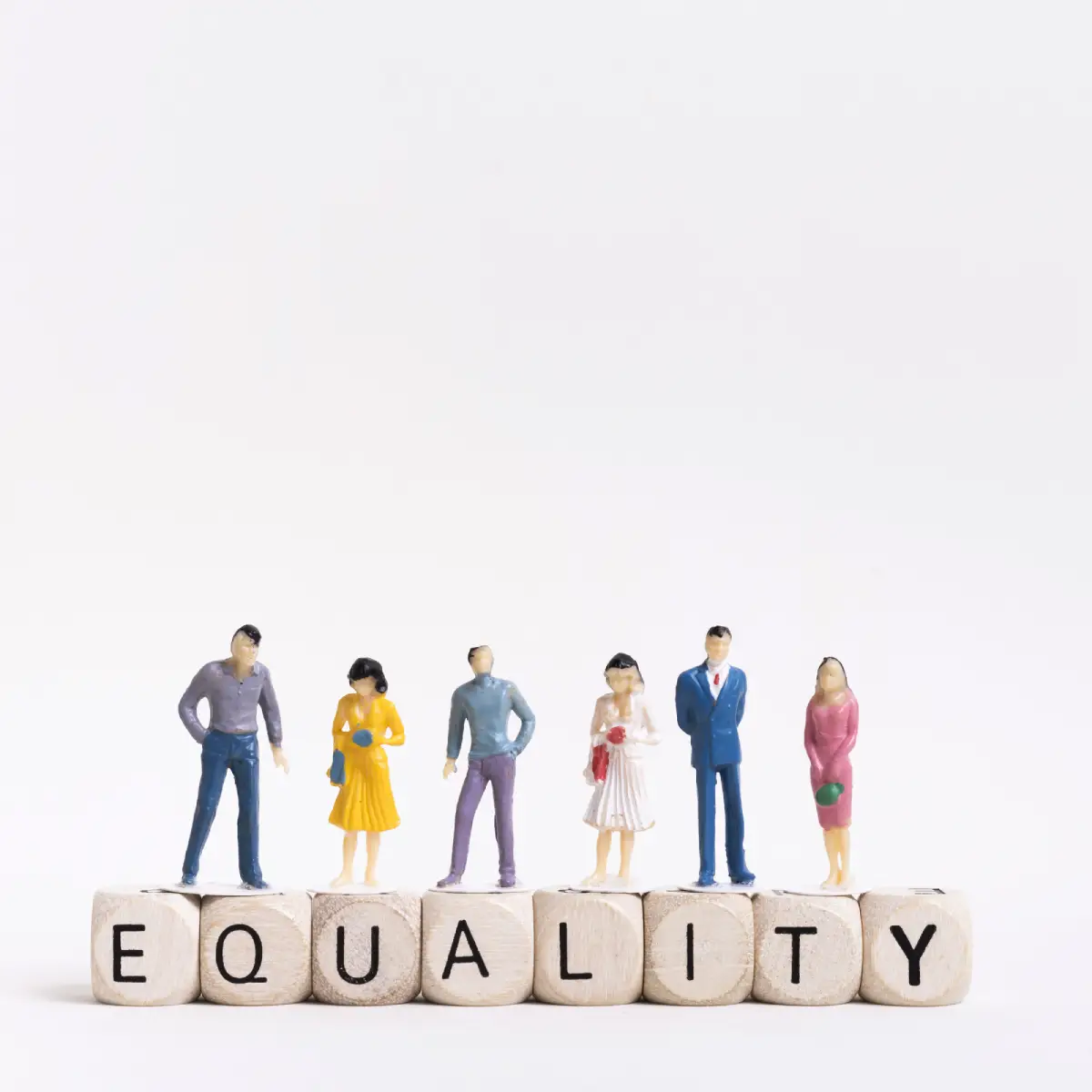In today’s workplace, diversity extends far beyond race, gender, or culture. One of the most pressing challenges for businesses is managing and supporting a multigenerational workforce. Baby Boomers, Millennials, and Gen Z currently dominate workplaces, each with distinct needs when it comes to mental health and well-being. As organisations strive to create environments where employees can thrive, decision-makers must recognise that a one-size-fits-all approach no longer works.
Generational differences in attitudes, expectations, and challenges require tailored well-being strategies to ensure everyone feels supported and empowered to succeed. This article explores what mental health and well-being look like across generations and provides actionable steps for business leaders to address these needs effectively.
Why Understanding Generational Differences Matters
Workforce demographics are shifting quickly. As Baby Boomers retire later and Millennials and Gen Z take up the majority of global roles, workplaces must adapt. Each generation approaches mental health and workplace support differently, influenced by societal contexts, personal experiences, and technological advancements.
A 2022 Mind the Workplace survey revealed that:
- Younger employees (Millennials and Gen Z) prioritise mental health far more than older generations.
- Baby Boomers are often reluctant to ask for support related to work pressures or mental health due to stigma.
- More than 70% of employees feel their organisation should do more to support mental health.
For leaders, tailoring well-being strategies for each generation not only enhances morale and productivity but sends a clear message that every employee’s individual needs are valued. This fosters a positive, inclusive culture where mental health is prioritised for all.
Generational Mental Health and Well-being Needs
To develop tailored strategies, it is critical to understand the unique challenges and expectations of Boomers, Millennials, and Gen Z when it comes to well-being.
1. Baby Boomers (Born 1946–1964)
Challenges:
Baby Boomers are often nearing retirement or working beyond traditional retirement age due to financial reasons or a desire to remain active. However, this generation faces several workplace well-being challenges:
- Concerns about job security as employers shift focus to younger talent.
- Age-related health issues that affect physical stamina and mental clarity.
- Reluctance to openly address mental health issues due to generational stigma.
Well-being Needs:
Boomers value practical and traditional support such as healthcare benefits, financial planning for retirement, and ergonomic workplace adjustments. They often prefer mental health solutions tied to physical wellness or productivity, like wellness seminars or workshops. Privacy is important—support systems that are non-invasive or heavily stigmatised are more likely to work effectively.
2. Millennials (Born 1981–1996)
Challenges:
Millennials represent the largest generation in today’s workforce, but they also report the highest levels of workplace stress. With heavy personal and professional demands, this generation often struggles with:
- A lack of work-life balance.
- Rising living costs and concerns about financial well-being.
- Burnout from juggling career growth, family responsibilities, and societal expectations.
Well-being Needs:
Millennials prioritise flexible working arrangements, including hybrid or fully remote work models, that allow them to spend more time with family and pursue personal interests. They value mental health resources such as therapy, mindfulness apps, and support networks. Ongoing personal and professional development opportunities play a significant role in boosting their mental health.
3. Gen Z (Born 1997–2012)
Challenges:
As the youngest generation in the workforce, Gen Z is entering professional environments already shaped by challenges such as the pandemic, economic uncertainty, and climate stress. Their unique concerns include:
- High levels of anxiety and depression.
- A need for purpose-driven work that aligns with their values and passions.
- Difficulty setting boundaries in an always-connected digital world.
Well-being Needs:
Gen Z prioritises authenticity, transparency, and inclusivity in how organisations address mental health. They expect employers to openly discuss and de-stigmatise mental health. Support systems that integrate technology—such as digital well-being platforms or virtual counselling—resonate strongly with this generation. They thrive in workplaces that foster a sense of community and value social connections.
Tailoring Strategies to Support Mental Health Across Generations
Now that we understand the differing needs by generation, here are actionable steps to build a comprehensive mental health and well-being strategy tailored to your diverse workforce.
1. Offer Flexible Work Options to Meet Generational Needs
Flexibility is a universal priority, but its implementation must reflect generational nuances.
- Gen Z and Millennials prefer remote or hybrid work options that align with personal lives and passions. Offering flexible schedules ensures they can manage their mental health outside traditional working hours.
- Boomers, although less inclined to remote work, still appreciate adaptable hours that accommodate health appointments or part-time arrangements leading to retirement.
Action Tip: Create flexible work policies that allow employees to customise their schedules where feasible. Address individual needs during regular check-ins for a personalised approach.
2. Normalise and Promote Mental Health Resources
Removing stigma around mental health benefits all employees but is especially important for Boomers and those reluctant to seek help.
- Introduce Employee Assistance Programmes (EAPs) that offer counselling and emotional support in-person, digitally, or anonymously. Employees of all generations are more likely to use resources they trust.
- Promote mental health awareness campaigns and training for leaders, helping all teams recognise and support mental well-being.
- Forgo blanket wellness initiatives in favour of diverse programmes for varying needs—for example, meditation tools for Millennials and Gen Z alongside retirement planning tools for Boomers.
Action Tip: Routinely include reminders about mental health benefits in your team communications or noticeboards to keep well-being top-of-mind.
3. Invest in Manager Training Across Generations
Managers are central to creating an inclusive workplace culture that prioritises mental health. However, they must first understand the differences among their teams.
- Train managers to recognise generational well-being needs, such as identifying burnout in Millennials or stress in Gen Z over long-term uncertainties.
- Equip leaders with emotional intelligence tools to have empathetic conversations, offering tailored solutions based on generational perspectives.
Action Tip: Introduce comprehensive mental health training for managers that includes generational awareness modules.
4. Build Inclusive Workplace Cultures for Gen Z
Gen Z expects their employers to model empathy, honesty, and inclusivity at every level.
- Create safe spaces for open dialogue where employees can confidently share challenges without judgment.
- Encourage initiatives that promote collaboration and mentorship between generations, helping build connections and share perspectives.
- Offer purpose-driven initiatives, including sustainability projects or volunteering opportunities, aligning with Gen Z values.
Action Tip: Set up peer networks or cross-generational mentorship to foster connections and mutual learning.
5. Tailor Well-being Benefits for Life Stages
Generational differences mean varying expectations for workplace well-being support.
- Boomers: Focus on physical health improvements such as ergonomic setups, comprehensive healthcare, and information about retirement planning.
- Millennials: Introduce financial wellness schemes, such as debt management support, and facilitate childcare or family-friendly benefits.
- Gen Z: Provide access to digital mental health platforms, virtual peer support groups, and stress management techniques.
Action Tip: Review your current benefit offerings and find gaps that might signal a lack of diversity in your well-being initiatives.
6. Leverage Technology for Mental Health Support
Using technology to deliver scalable well-being solutions is particularly effective for Millennials and Gen Z, who naturally gravitate toward digital tools.
- Offer subscription-based apps or tools for mindfulness, meditation, or therapy (e.g. Calm, Headspace, or BetterHelp).
- Gamify wellness programmes using wearable devices to encourage physical activity, tracking sleep, and reducing stress.
- Provide access to online counselling sessions or AI-powered platforms for discreet mental health support.
Action Tip: Implement workplace-wide access to selected well-being apps, ensuring all employees—regardless of location—can benefit.
7. Showcase Leadership Examples
Leaders who prioritise their own well-being set the tone for employees to do the same. Regardless of generation, employees are more likely to engage in mental health practices when encouraged from the top down.
- Encourage senior leaders to share personal stories about mental health and how they manage challenges.
- Demonstrate leadership buy-in by actively promoting mental well-being programmes and showcasing participation.
Action Tip: Include workplace mental health as a regular discussion topic in company-wide meetings or town halls.
The Benefits of Adapting Well-being Strategies
Mental health and well-being are more than just moral imperatives—they are critical drivers of business success. By addressing generational differences in well-being needs, organisations can expect:
- Higher Retention Rates: Employees who feel valued and understood are more likely to remain loyal to their workplace.
- Improved Productivity: Happier, healthier employees perform better, collaborate more effectively, and deliver higher-quality outcomes.
- Enhanced Employer Branding: Engaged teams create a positive reputation that attracts top talent across all generations.
- Reduced Absenteeism and Presenteeism: Proactive mental health initiatives mean fewer sick days and higher morale.
Final Thoughts
Supporting employee well-being across generations is a challenge that requires flexibility, empathy, and tailored solutions. Decision-makers must understand the unique experiences and expectations shaping Baby Boomers, Millennials, and Gen Z to foster a workplace where everyone can thrive.
By investing in generationally-focused mental health strategies, organisations not only support their workforce but also cultivate resilient, productive teams prepared for long-term success. After all, the key to a happy, engaged workforce is recognising that while every employee is different, their well-being is everyone’s priority.




















